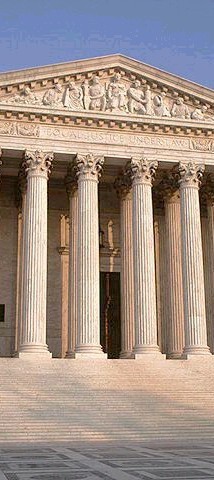Why They Legislate 'From The Bench'
By Martin Mayer - September 13, 2005 - The Christian Science Monitor
President Bush, in nominating John Roberts to be chief justice of the US - along with conservative senators questioning him during his ongoing judiciary committee hearings - insists that if confirmed, Mr. Roberts will not "legislate from the bench." From within the court, Justice Antonin Scalia has complained that the common-law tradition leaves judges too free to make a decision that pleases them and then hunt up prior cases or evidence of "legislative intent" that can be interpreted to support their position.
This article expresses very clearly the problem that results from the legislative compromises when laws are passed, in an environment where judges get to "make law". The argument that the judges can "listen to the voice of Congress" presumes that congress spoke with one voice. When an element of a law is unconstitutional, and that element serves one group, striking that element disenfranchises that group. It is unjust, and ignores the compromise of legislating in a representative democracy, to change a portion of a law while leaving the rest intact. That was not done in Marbury versus Madison. The entire law was struck. Anyone who claims the power to declare a portion of a law unconstitutional, is not basing this on Marbury versus Madison, but is usurping power based on a perversion of a usurping of power.
A worthwhile read.


0 Comments:
Post a Comment
Subscribe to Post Comments [Atom]
<< Home